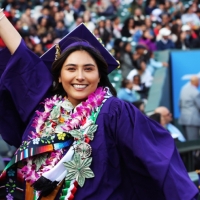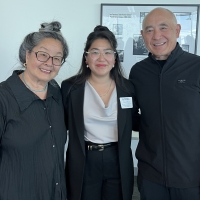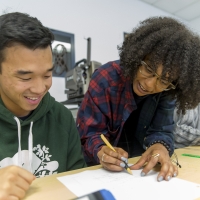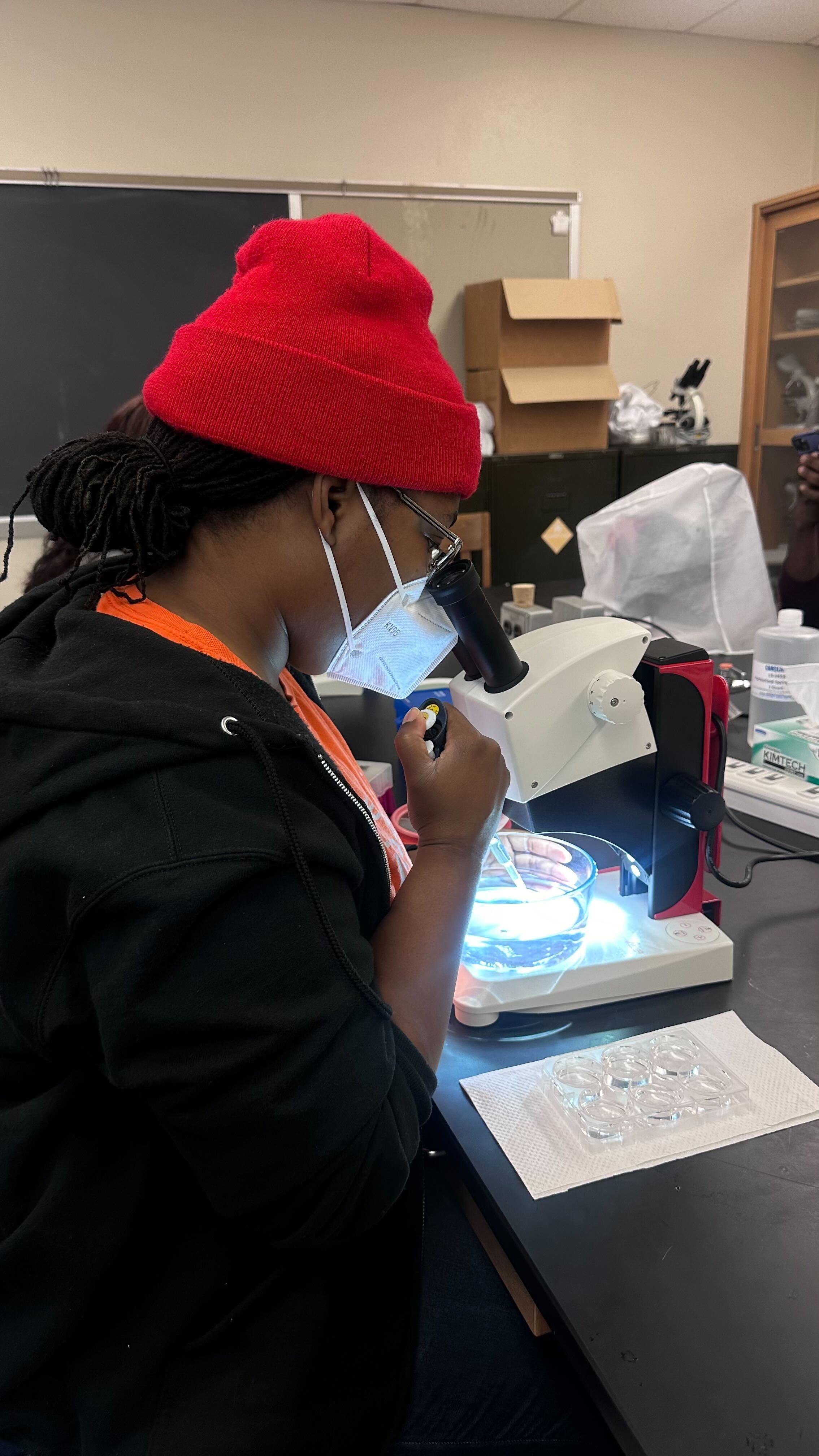
Mikesha Carter
Top: BMS scholar Uzor Awuzie at right
By Gail Mallimson
September 2024
Although her educational path has been varied, Mikesha Carter (B.S., ’23) knew that she wanted to be a scientist ever since she saw Bill Nye on TV as a child. “When I was young, I made little laboratories,” says Mikesha. “I wanted to get into science as a researcher, be at the bench, and discover some things.” After receiving an associate’s degree at Berkeley City College and working as a substitute teacher for several years, she made the commitment to pursue a bachelor’s degree at SF State.
Mikesha received her undergraduate degree in Physiology from SF State in 2023 and decided to stay at the University to pursue a master’s in science degree in Molecular Biology. Motivated by the opportunity to join a research project on diabetes, she applied to the College of Science & Engineering’s Student Enrichment Opportunities Office (SEO), which connects underrepresented students with funding and research opportunities on campus.
Mikesha was awarded a Bristol Myers Squibb BE-STEM Scholarship, a comprehensive scholarship which provided her a stipend and paid for her tuition for one year. The scholarship also pays awardees stipends for supplies and conference travel. “If I didn't have this funding, I would have had to find another way to make money,” says Mikesha. “I wouldn't have the mental space, the ability to be as successful as I have been or to go to these conferences and make these connections, to advance my research, without the support provided by BMS funding.”
Through its corporate giving program, Bristol Myers Squibb (BMS), a global biopharmaceutical company that develops, researches, and manufactures medicines to help patients with serious diseases, has generously funded the BE-STEM scholarship program since 2020 as well as programs at other educational institutions that foster the next generation of STEM researchers as part of their commitment to STEM education. Biology professor and SEO Director Megumi Fuse has been the Principal Investigator (PI) for the BMS program and oversees its programming and awards. The grants are awarded to students who participate in CoSE’s Black Excellence in STEM (BE-STEM) club and conduct research in a lab. “The BMS BE-STEM scholarship program has been extremely successful,” says Megumi. “To date, we have funded 16 students. Of the nine who have already graduated, five received offers to pursue Ph.D.s and one is now in medical school at Howard University.”
It is exactly this kind of success that BMS hopes to inspire with the BE-STEM grants. “Investing in STEM not only drives technological advancements, but also promotes diversity, inclusion and equality in the scientific community, which we are very keen on,” says Chétana Rao, Ph.D., Head of Global R&D STEM Strategy at BMS. “10-15 years from now we will see the fruits of our labor with increasing numbers of scientists who come from diverse backgrounds with diverse thoughts, which promotes innovation.”
Stephanie Uzor Awuzie (B.S., ’23), another BMS BE-STEM scholarship recipient, values BMS’s commitment to diversity in the sciences. “A lot of science is driven by people's personal experiences,” says Uzor. “Their occupation, background, or their medical history. It's what drives people to want to understand why things are the way they are, and how can we change it. That's why having diverse scientists is so important.”
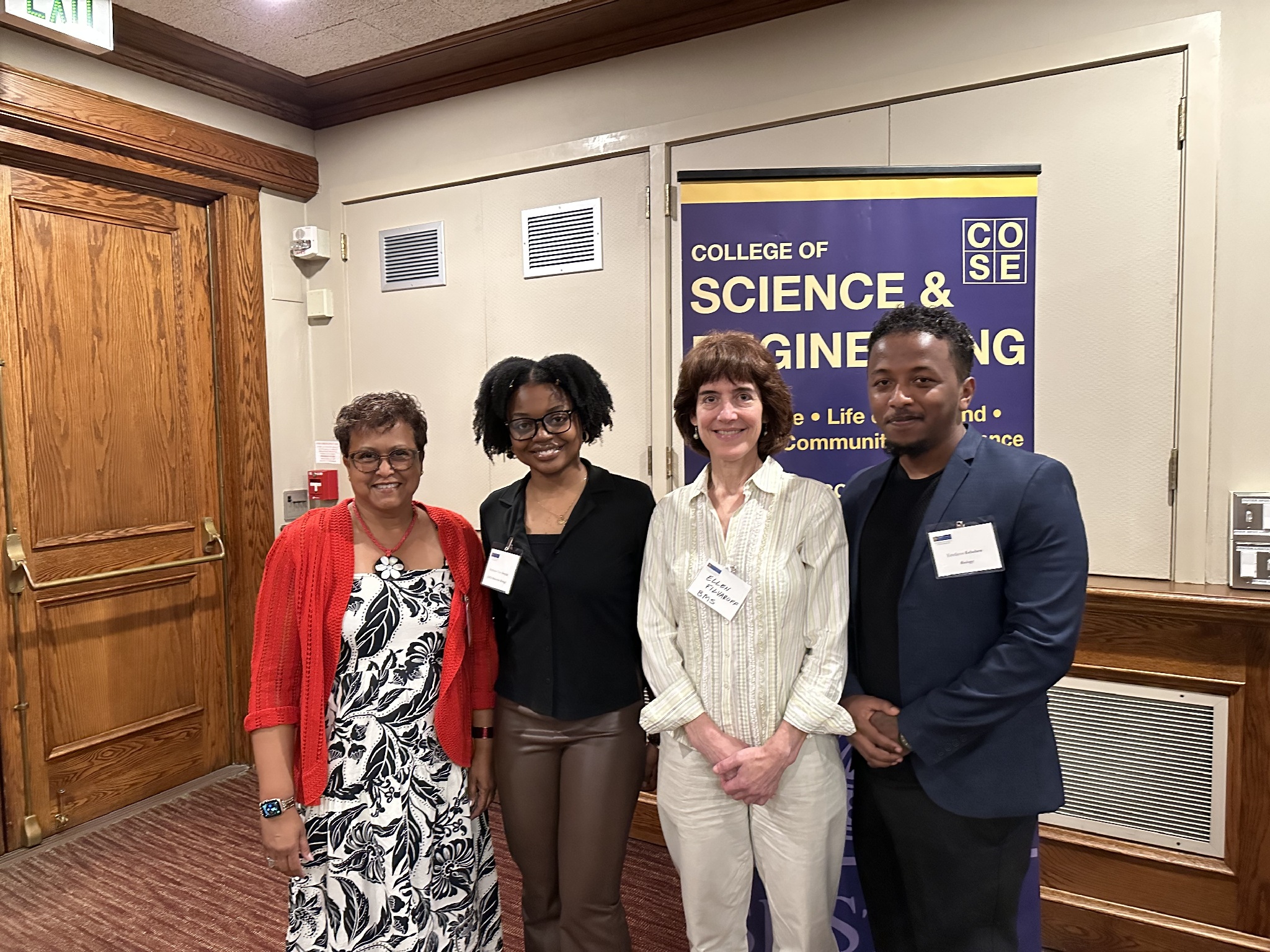
Left to right: Chétana Rao, Ph.D., Uzor Awuzie, Ellen Filvaroff of BMS, former BMS scholar Estefanos Kebebew
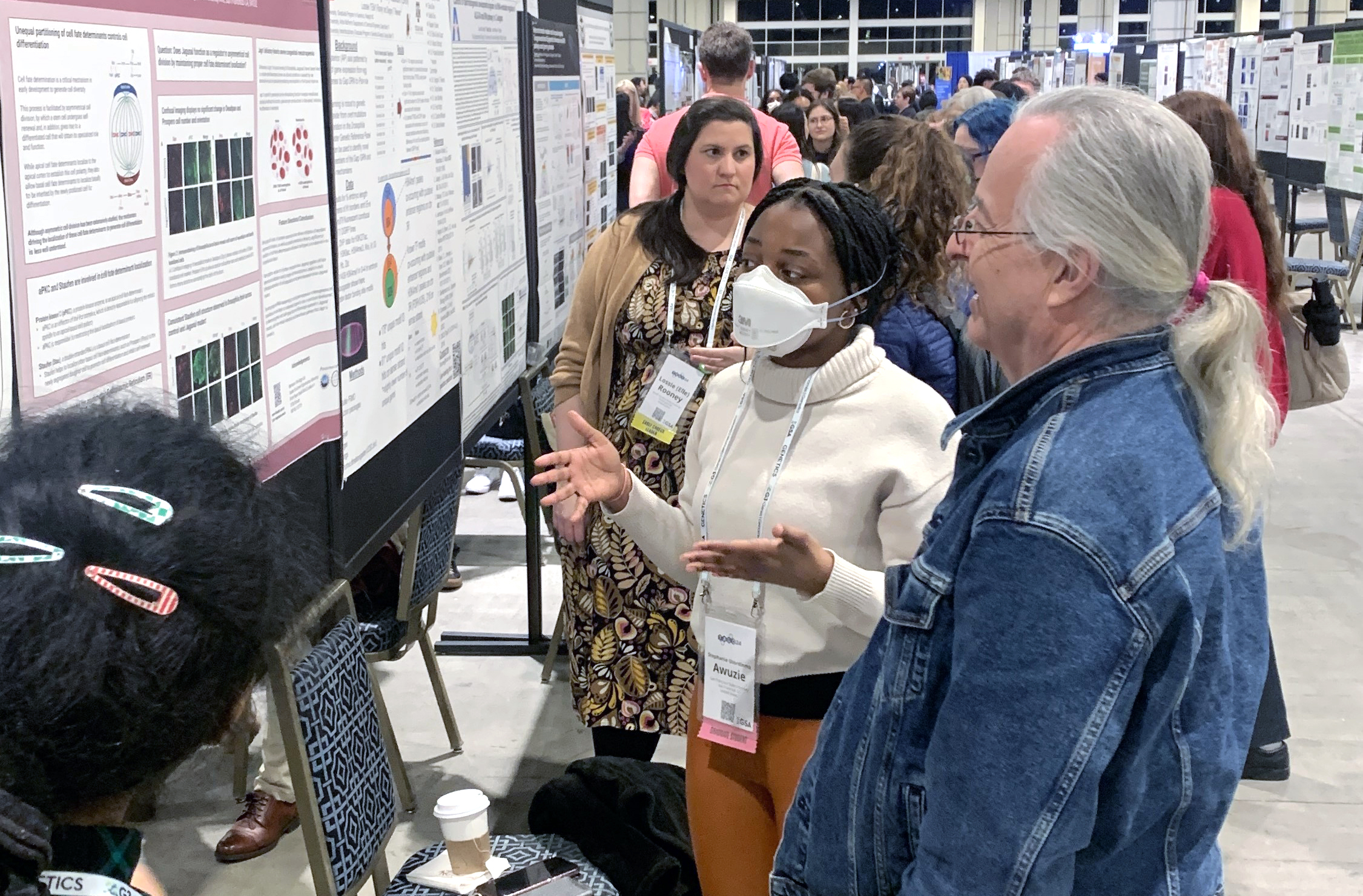
Uzor (middle) explaining a project at a science conference
Uzor’s experience at SF State and with SEO and the BE-STEM club have led her to be a staunch supporter of CoSE and the University. “It's been great. Having that financial hardship removed from me has allowed me to put more hours in the lab,” says Uzor. “I know that I have this scholarship not only because I applied for it, but because I have people behind me – professors that advocated for me.”
Both Uzor and Mikesha plan on pursuing careers in the sciences once they receive their master’s degrees. Mikesha is currently applying to Ph.D. programs and hopes to continue her research in diabetes, a subject she chose because multiple family members have been stricken by the disease. She is also interested in teaching and hopes to have the opportunity to spark an interest in the sciences in her future students.
Uzor is still weighing her future opportunities. She is applying to Ph.D. programs and is interested in working in infectious diseases and virology, and is also considering pursuing jobs in the private sector. In addition to funding, SEO provides students with opportunities to meet with potential mentors and learn about careers in the sciences, which Uzor credits with opening her up to exploring different aspects of careers in science. “It's definitely changed my life, and changed the aspirations I've had as well,” says Uzor. “It's made me want to reach farther and see myself in higher positions than I could’ve before.”


